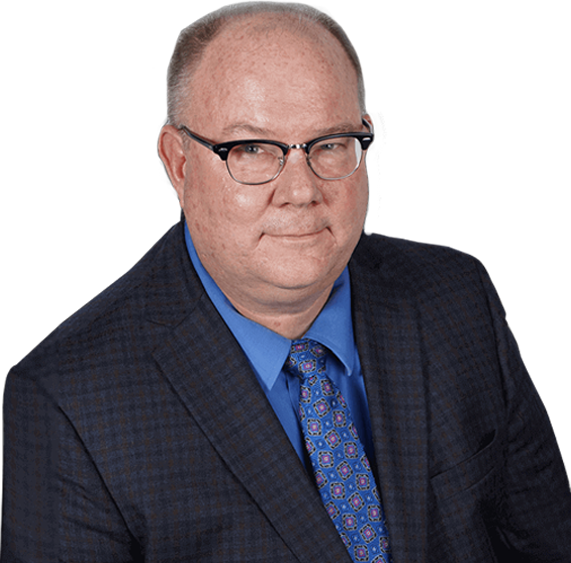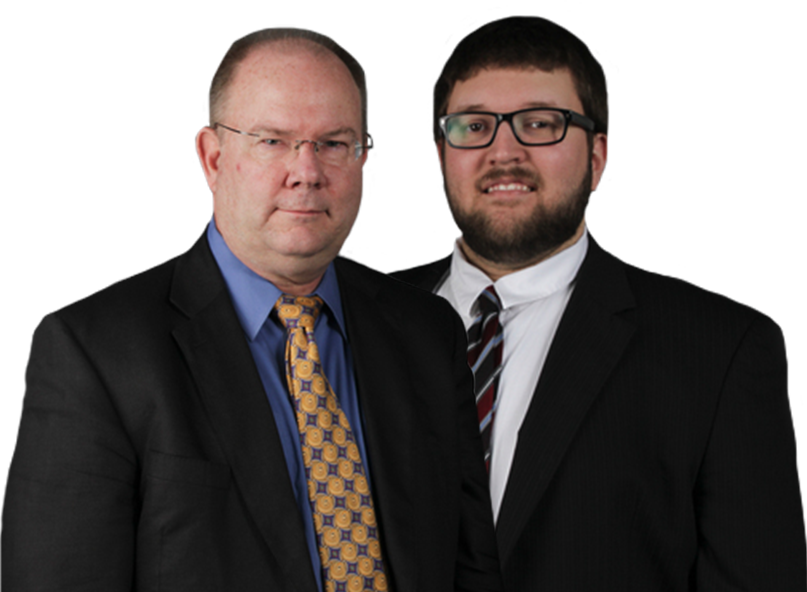G. John Dezenberg Jr.

G. John Dezenberg Jr.
Biography
Native of Huntsville, Alabama, (Whitesburg Elementary, Middle Schools, Grissom High School). Graduated from the University of Alabama, Tuscaloosa, Undergraduate 1983, and UA School Of Law 1986. Practiced with Hon. Lee Clyde Traylor, Fort Payne, Alabama, 1986, Higgs & Conchin 1987-1989, G. John Dezenberg, Jr. 1989-1993, 1994-2012, and 2014-2017, Higgs, Emerson & Dezenberg 1993-1994, Dezenberg & Larsen, P.C. 2012-2014, and Dezenberg & Smith, P.C. 2017 to present.
In 1994, limited his practice to Bankruptcy Law and Debt Relief For Consumers. Member of National Association Of Consumer Bankruptcy Attorneys where he keeps up with Bankruptcy Law changes at the National Conventions on an annual basis.
Past Positions
- Lee Clyde Traylor, Associate Attorney, 08/1986 to 12/1986
- Higgs & Conchin, Associate Attorney, 01/1987 to 12/1989
- G. John Dezenberg, Jr. Attorney At Law, Owner, 01/1990 to 02/1993
- Higgs, Emerson & Dezenberg, Partner, 03/1993 to 03/1994
- G. John Dezenberg, Jr. Attorney At Law, Owner, 04/1994 to 04/2012
- Dezenberg & Larsen, P.C., Managing Partner, May 1, 2012 – November 30, 2014
- G. John Dezenberg, Jr., Attorney At Law, Owner, December 1, 2014 – June 30, 2017
- Dezenberg & Smith, P.C., Managing Partner, July 1, 2017 – Present
Education
- The University of Alabama School of Law, Tuscaloosa, Alabama
- J.D. – 1986
- University of Alabama, Tuscaloosa, Alabama
- B.A. – 1983
Professional Associations
- National Association Of Consumer Bankruptcy Attorneys, Member, 2005 to Present
- National Academy For Bankruptcy Attorneys, Selected Top 10 Best Attorneys – State Of Alabama, 2014 to Present
- American Institute Of Bankruptcy Attorneys, Voted a “Ten Best Bankruptcy Attorney” – State of Alabama, 2014 – Present
- Huntsville Madison County Bar Association, Member, 1987 – Present
Current Employment Positions
- Partner
Practice Areas
- Bankruptcy 100%
- Chapter 13
- Chapter 7
- Debtor/Creditor
- Foreclosure & Alternatives
Bar Admissions
- Alabama, 1986
- U.S. Federal Court, 1987
- U.S. District Court Middle District of Alabama, 1987
- U.S. District Court Northern District of Alabama, 1987
- U.S. District Court Southern District of Alabama, 1987
Honors
- Best Paper, Patents & Copyrights
- Best Paper, Damages
- Best Paper, Consumer Law
- Best Paper, Future Interests
- Top 10 Bankruptcy Attorney – State of Alabama (NAFBA) 2014
- Voted a “Ten Best Bankruptcy Attorney” – State of Alabama by AIOBA 2014-2016
Representative Cases
Matter of Staggs, 573 B.R. 898 (Bktcy. N.D. Ala. 2017).
Debtor was the sole owner of a car dealership, Alabama Direct Auto, LLC. Her husband ran the business and she did not have any direct day to day involvement with the dealership. Westlake Services had a floor-plan agreement whereby they loaned money to the business and retained security interests in the vehicles purchased. The agreement stated the money from vehicles sold on the floor-plan would be paid over to Westlake as the vehicles were sold. Vehicles were sold on the floor-plan proceeds were not paid over to Westlake. Westlake sued for fraud. Judgment for our Debtor on all Counts. The Court held that Debtor proved she was not involved in the business and did not make the decisions as to which vehicles were paid off such that she was not guilty of fraud.
Redstone Federal Credit Union v. Whited, Case No. 5:17-CV-00496-MHH.
Debtors filed Bankruptcy and claimed the $30,000 homestead exemption on their home against a Judgment Lien of RFCU. RFCU argued that the homestead exemption should be only $10,000.00, the amount allowed when they obtained their Judgment. Judgment for our Debtors. The Court agreed with the Debtors that the homestead exemption in effect on the date of the filing of the Bankruptcy is the correct exemption to apply, not the exemption in effect when the Creditor obtained its Judgment.
Matter of Vickrey, 2018 W.L. 5255218 (Bktcy. N.D. Ala. 2018).
Our client purchased a Genghis Grill franchise with the Plaintiff. Plaintiff sued for fraud, defalcation, and willful and malicious injury, in an attempt to have the debt owed by our client to his ex-business partner excluded from his discharge. Judgment for our Debtor on all Counts. We not only had our client completely exonerated from the Plaintiff’s allegations but got a judgment for our attorney fees and costs against the Plaintiff as having brought his action in bad faith.
Matter of Easterling, 597 B.R. 144 (Bktcy. N.D. Ala. 2019).
Our clients purchased a retail cookie store franchise which the Plaintiffs owner-financed. The Plaintiffs sued our clients in an attempt to deny discharge on grounds that they failed to disclose that they would offer art classes at the store, that they transferred or disposed of business property, that they did not maintain adequate business records, and that they did not adequately explain the loss of assets in the business. Judgment for our Debtors on all Counts. The Court found that the Plaintiffs could not sue on the franchise agreement to which they were not a party, and further found that they did not carry their burden of proof on the other Counts of their Complaint.
In re: Bailey, Case No. 18-83438 (Bktcy. N.D. Ala. 2020).
Our client had a Judgment entered against her in her divorce decree in favor of her ex-husband. The Judgment was not explained in the decree, but was for amounts the ex-husband paid on the mortgage while the Debtor was living their. Property settlements are dischargeable in a Chapter 13 case but Support Obligations are not. Ex-husband argued that the payments on the mortgage were made as support to the wife. We objected to the ex-husband’s claim that was filed as a priority support debt for $29,530. Judgment for our Debtor. Claim was disallowed as a support debt owed to the husband and was determined to be dischargeable as a part of the property settlement.

